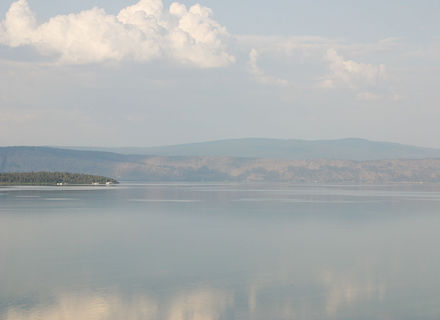Private Treaty February 2025
Pacific Cattle Angus, Sim-Angus, and Simmental range-raised production fall bulls available by PRIVATE TREATY FEBRUARY 2025 Carl Wisse • carl@pacificcattle.com www.pacificcattle.com • 509-539-6850 • Eltopia, WA
Published 4:45 pm Monday, January 27, 2025

A federal appeals court has halted deliberations in a lawsuit over Klamath basin water rights while considering whether to refer it to the Oregon Supreme Court.
Last June, the 9th U.S. Circuit Court of Appeals held oral arguments that centered on federal Endangered Species Act enforcement and whether it can override the state government’s administration of water rights.
Since then, the Klamath Irrigation District — one of many parties involved in the complex case — has asked the 9th Circuit to “certify” the central legal questions to the Oregon Supreme Court.
Though the lawsuit had already been formally submitted, the 9th Circuit has decided to “vacate submission of this appeal” while weighing whether to kick the matter to the state’s highest court.
The Klamath Irrigation District is urging the appellate court to do so, arguing that key issues are “grounded in Oregon law” involving water rights and property.
The 9th Circuit can interpret state law but those conclusions aren’t “binding” on state courts, so it should avoid issuing a ruling that could eventually be contradicted by the Oregon Supreme Court and “create uncertainty for all parties,” the irrigation district said.
“This is no minor issue. Historically, federal and state interpretations of Oregon water law have diverged significantly,” with state court rulings undermining the 9th Circuit’s understanding of water rights ownership, the district said.
In this instance, the lawsuit seeks to determine the extent of the U.S. Bureau of Reclamation’s authority to help threatened salmon species by releasing water from Upper Klamath Lake, in which irrigators have private water rights.
“Oregon’s water rights and laws, which govern the use and control of water in UKL, were established long before the ESA was enacted and apply uniformly across the state, even in areas where no listed species are present,” the district argues. “Therefore, these state law questions should be addressed independently of Reclamation’s ESA obligations in this case.”
In 2023, a federal judge decided the Endangered Species Act pre-empted an order issued by the Oregon Water Resources Department, which tried to stop the agency from releasing water from the lake on behalf of irrigators.
The Klamath Irrigation District and Klamath Water Users Association challenged that decision, which is how the issue ended up before the 9th Circuit.
The U.S. government is asking the 9th Circuit to deny the motion to certify the case to the Oregon Supreme Court, arguing the request could’ve been made earlier and is now untimely.
“KID had ample opportunity to seek certification of state law questions earlier in the case,” the federal government said.
Such a referral is also unwarranted because any dispute over the agency’s “authority and discretion” in this case is “exclusively a question of federal law,” as Reclamation’s contracts with irrigators are governed by federal statutes, the government said.
“There is no basis for certifying these issues to the Oregon Supreme Court,” according to the government.
The federal government’s arguments against certification are echoed by the Oregon Water Resources Department, which also said the request was made too late and isn’t legally appropriate.
Even if the irrigation district’s interpretation of Oregon water law is correct, state law is “not determinative” in this case because “federal law controls to the extent of a direct conflict with Oregon law,” according to OWRD.